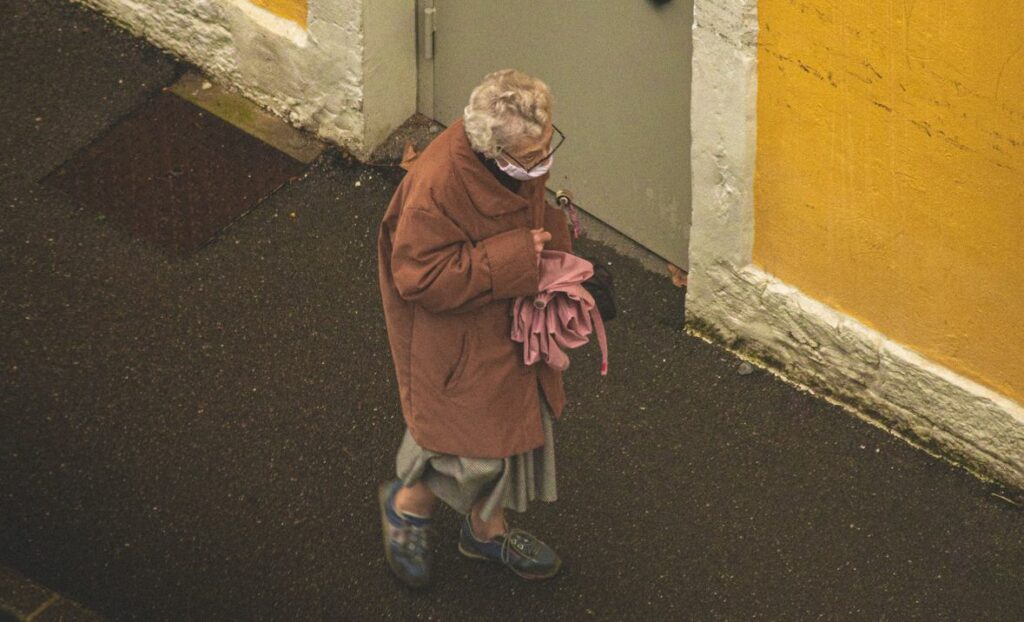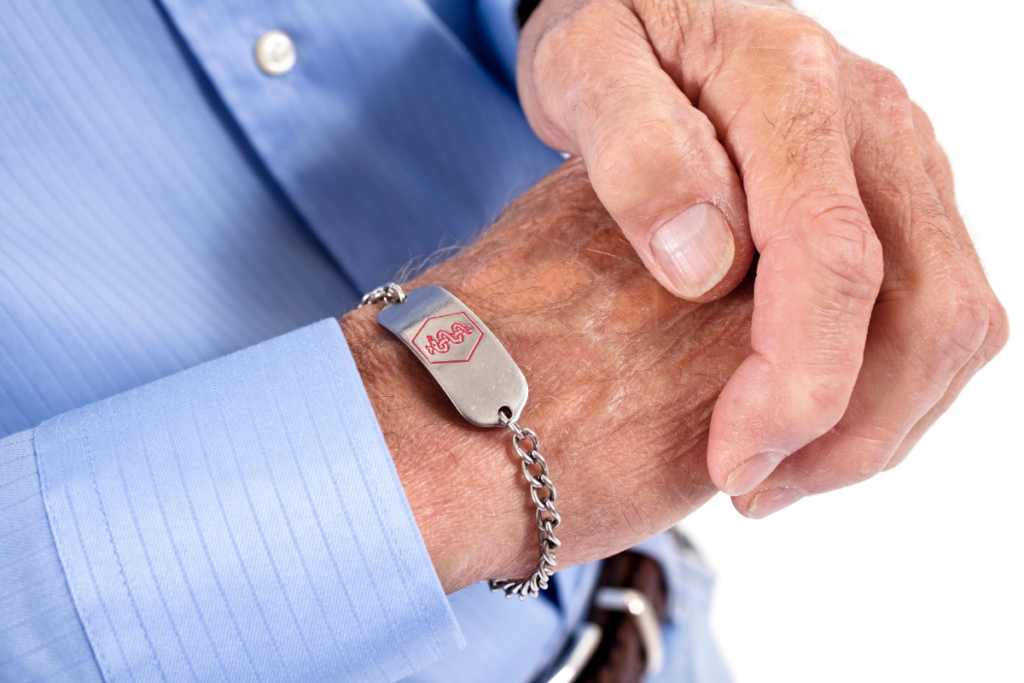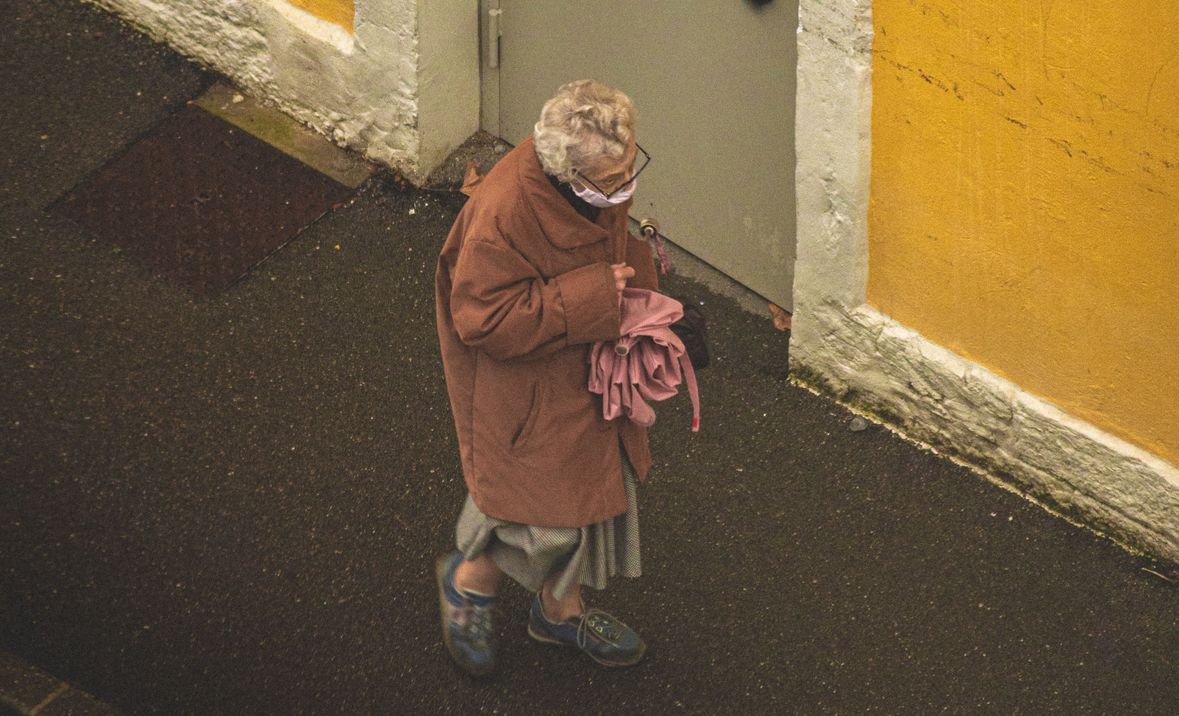For those who are caring for an elderly loved one who is living with cognitive issues, the fear that they might wander can weigh heavy. What if they get lost, or involved in an accident? What if they become confused about their surroundings and become scared or upset?
Wandering is a risk that is associated with conditions such as dementia or Alzheimer’s, and for those who have had a stroke, suffered a head injury, are living with Parkinson’s disease, or are on the autism spectrum.

That’s not to say, of course, that all older adults living with such conditions will wander, or that those who aren’t, won’t.
But, either way, there are some signs you can look out for that can be indicative of someone who might be more at risk of wandering.
Signs such as:
Returning from regular walks or drives later than usual. Talking about wanting to ‘go home’, even when they are home. Talking about doing things or going places that they haven’t done for many years – such as going to work or to visit a parent, for example. Forgetting how to get to places they are used to visiting regularly. Becoming restless or pacing. Asking after past family members or friends. Seeming to be lost in a new environment. Becoming nervous or anxious in crowded places.
Of course, again, this is not an exhaustive list, and even if we know some of the signs to look out for, carers are only human. It’s impossible to watch another person every second of the day – particularly if we are also trying to work, look after children, or care for other family members as well.
In fact, even the most dedicated carer isn’t going to be able to stop an elderly person who has a tendency to wander from doing so every single time.
Luckily, there are some tips you can follow that will help you to keep your loved one safe, and make you a lot less anxious.
Tips To Protect Your Elderly Loved Ones
Securing The Home
You can increase safety at home and prevent your loved one from wandering by making sure that door and window locks are high up. This makes them less noticeable and more difficult to reach. You might also want to use motion detectors that can alert you if someone opens a door or window, or maybe even use a simple bell.

Other ways you can reduce the risk of an elderly loved one wandering from the safety of their home include:
- Covering door knobs in a material that is the same colour as the door so that they don’t stand out.
- Camouflage doors by making them the same colour as the walls
- Using black tape or paint in front of the door may act as a visual barrier
- Use hedges, fencing and locked gates to secure outside areas
- Make sure that there both indoor and outdoor areas that are secure and safe to be explored
- Put away items that might be a trigger to someone who wanders. This can include coats, hats, wallets and keys
- Make Sure Your Loved One Always Carries ID
This isn’t something that’s going to prevent wandering, but is a way to ensure that an elderly person who has ended up away from their carer or safe place can be identified as quickly as possible.
Making sure they have their ID in their wallet isn’t enough. They could accidentally or purposely remove it, wander without their wallet, or lose it altogether. Medical ID jewellery, such as a bracelet or pendant can be a good idea…or possibly sewing their identification into an item of clothing – although of course this is only useful if they wander off wearing it!

In this day and age of modern technology, there’s even the option to microchip your loved one and use GPS trackers! And, particularly in the US, temporary tattoo kits are sometimes used.
If all this talk of ID tags and sewing names into clothing is making you feel uncomfortable – I don’t blame you. These are our elders who raised us and looked after us, and now we’re treating them like a pet or a small child starting school! But the truth is that as we age, and especially when we become very frail or have cognitive health issues, we become just as vulnerable as the very young.
And so, in order to prevent someone we love who is older from becoming lost or hurt, it might be necessary to take such measures.
There are some other things you can do to protect them too….
Think About Their Clothing
If it’s appropriate and your loved one doesn’t object, ask them to dress in brighter colours that can be easier to spot from a distance. This can be a good idea for an elderly person who might wander in a crowded place.

Know Your Neighbours
It’s a good idea to introduce your elderly loved one to the neighbours if they are likely to wander. Make sure they get to know their face, let them know that they might wander, and give them your contact details. That way, if one of them sees your relative out alone they can let you know.
Some people aren’t inclined to get involved, so make it clear that you’re not expecting them to intervene or be accountable for anything, just to simply make a phone call and say, ‘I’ve just seen your dad/nan/mum walking up the road’.
This could be invaluable when it comes to finding your loved one and getting them home and safe as quickly as possible.
Get Some Exercise
This tip isn’t proven, and might not work for everybody – (or even be possible, depending on your loved one’s level of mobility) – but there are some experts that believe that getting enough exercise during the day could prevent wandering at night.

I’m not talking about running marathons here; just a simple before or after dinner walk. It’s a healthy habit to get into regardless, so definitely worth a try!
The Importance Of Good Quality Sleep
The act of wandering has been linked to sleeplessness, so it’s important that you encourage your loved one to get as much good quality sleep as possible.

Try and have them nap less during the day and cut out caffeinated drinks. The more regular they are able to keep their sleeping and waking hours, the better.
Caring for an elderly person who is living with a condition that might make them wander can be a frightening and daunting time. At Care In Kent we understand, and we want to offer our support. This is why we offer a range of home care services for the elderly and vulnerable, including respite care, help around the home, and help with personal care.
Please get in touch with a member of our dedicated team to find out more.


